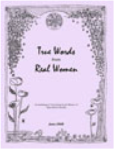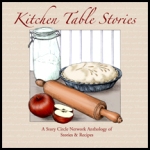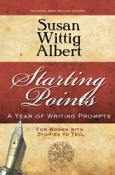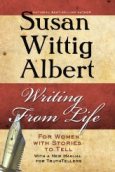M. Jane Ross
Just home from the annual Writers' League of Texas Agents Conference—a weekend of intense listening, learning, getting to know some warm-hearted and talented Texan writers, meeting agents, and pitching stories. In a detour from my usual topic of food, I wanted to share my takeaways (the non-edible kind) from the weekend. Three key points rose to the top in the ocean of information that was the conference.
The state of the publishing industry
In two words: upheaval and distress! Publishers, and by extension agents and writers, have been badly affected by the recession. Book buyers simply have less money to spend. And beyond that, corporatization and consolidation in bookselling and trade publishing as well as huge transitions in the way we all read, how and where we buy books, and the kinds of books we are buying have thrown the book business into disarray.
Until recently, big-name publishers were very willing to invest in mid-list titles, books by unknown authors that were likely to sell “only” in the tens of thousands of copies. Now, those same publishers are looking primarily for front-list titles (blockbuster books by high profile authors, likely to sell hundreds of thousands of copies) or back-list titles (books that are likely to develop a required-reading quality in some area of the market and to become automatic re-orders at Barnes and Noble over many years). So where does that leave the memoir writer and the typical SCN author?
The market for memoir
Alas memoir writers’ prospects in New
York trade publishing are not promising, unless the story has both
exceptional writing —“sparkling” was the word used by several
agents—and a unique angle. Agent Jim Hornfischer gave the example
of an author he had agreed to represent as a result of pitch session at
a writers conference. The author worked as a volunteer in canine search
and rescue. Her story was a memoir about the work she did with her dog,
whether searching for the remains of the Columbia astronauts across the
fields of north Texas or finding missing children in her community.
Hers is a unique and poignant story with drama and a clear narrative
arc as the author learns to handle loss and to work with communities in
trauma.
Few of us have a story this unique or dramatic.
More often, our memoirs are the stories of learning to deal with the
trials and losses that are inherent in relationship and in life, within
the communities (geographical, religious, professional, and other) in
which we move. But although our stories may not have the drama and
potential to attract a national book audience, as writers we can (and
should) stay focused on crafting that sparkling prose. And we can focus
too on reaching our own unique platform and audience by other means,
whether through self-publishing, blogging, or a small-press publisher.
Know your platform
Agents stressed repeatedly the importance of knowing your platform.
If you’re Dr. Phil, your platform is your TV show and the show’s
audience. For us non-celebrities, our platforms are the communities in
which we live, work, play, volunteer, pray, share, etc. If your memoir
is of caring for an aging parent suffering from Alzheimers and you are
active in an online forum for Alzheimer caregivers, the readers of that
forum are part of your platform. If you blog and write about herbs,
then your blog readers and other herbalists are part of your platform.
Your platform includes both the medium by which you connect with others
interested in your subject and the number of engaged readers you’re
able to reach through that medium. However you plan to publish your story, you need to identify your platform. You’ll include that information in your book proposal, and you’ll refer to it as you craft the marketing plan for your book.
The best takeaway from the conference for me personally was being reminded that there is a supportive community of writers out there, sharing this journey. Beyond that, I’ve made connections with reputable agents and learned what they are looking for so I can bring that knowledge with me when I talk to my editing clients and writing circle members. I’ll soon be announcing my manuscript evaluation service. The conference experience brought me fresh knowledge and connections so I can better help writers who come to me for assistance as they take the next step towards publication.
There's so much more I could tell you about the conference. But why don't you tell me what you'd like to know. Looking forward to your questions, which I'll answer in subsequent posts.






Thank you for this great information, Jane. It’s sooo good to hear your thoughts about current situations and valuable to know where things are at in the industry right now. Mary Jo
For those of us not in the know, the “ocean of information” as you put it can be so overwhelming. I applaud you for your sharing and caring; your SCN sisters appreciate it, Jane.
Terrific post, Jane. I wonder: did the conference turn up any good suggestions for building a platform? In my case, starting out as an unknown mystery writer over 20 years ago, I had to build my platform from scratch: that is, make myself an expert in the field in which I situated my main character (herbs, gardens) That was back BI (Before the Internet), and it was darned hard work. I was inventing it as I went along. Any suggestions for new writers for DIY platform building?
Thank you Jane. While your insights into the state of the publishing industry probably fall into the category of secrets every writer knows today (either through firsthand experience or secondhand rumor), you have provided the positive steps and encouragement that writers so seldom receive.
Building one’s own platform is just one more case today of us having to take the initiative to find our venue, our audience and our own success. The right publisher among the thousands of small, independent presses can help with the technicalities of getting the book produced, but the lion’s share of the work falls directly on our shoulders. I hope everyone reads this and finds both the inspiration needed to keep going and the direction to have a happy resolution.
Thank you all for your feedback and questions. To Susan’s question about building a platform, the agents at the conference signally did not talk about how to go about building a platform. I think their angle was, Don’t come to us until you’ve already built that platform or at least figured out what your platform is and developed a plan to reach it.
Perhaps how to do that could be a topic for the SCN Stories from the Heart Conference next spring.
One agent mentioned an author she’ll be representing who has a blog about simple and frugal living that has gained a huge readership. This author lives in the outback of Australia; her blog is down—to—earth.blogspot.com and it reminded me of blogs that a number of SCN members run. What makes this particular blog special is the combination of visual interest, excellent writing, a clear organizing principle, practical advice, and a no-nonsense voice.
The point is, it seems like it’s possible to build a sizable platform from scratch primarily through blogging if you can make yourself an authority on your subject, by dint of your passion for the subject and hard work. Bottom line, though: there’s no simple formula for building a platform. I guess that’s why folks with marketing expertise are so sought after.
I think the most successful bloggers are also do-ers, Jane. Thinking here of the Julie/Julia project http://en.wikipedia.org/wiki/Julie_&_Julia which became a blog, then a book, then a movie. Julie actually did what she blogged about. When I was starting to “build a platform” for the China Bayles series, I was growing herbs, talking about herbs wherever I could get an invitation from a group (usually for free), joining organizations, and writing articles (print, because this was BI). I’ve discovered that the platform is built by doing, even if this means starting from scratch. (Of course, it’s easier if you can start from something you’ve already built–a career, a lifestyle, a passion.)
That’s an excellent point, Susan, and it may well apply to memoir authors and their books, too. I noticed that the agents’ examples of books that had grabbed them were most often the story of the author “doing” something — creating, building, growing, being engaged, being active in some sense. Alas, simply giving our opinions or reflecting on life in a detached way from the comfort of an easy chair will not generally yield a blog or book that will grab an agent.
Your herb experience is a perfect example of taking your passion and, by growing herbs, studying herbs, talking about herbs, translating that passion into action. Wonderful!
I built a fantastic platform for myself in the virtual world – by accident. LOL. By some curious twist of fate, I’ve become an authority figure about blog book tours. I have a blog, Facebook page, Squidoo authority lens, Twitter account, Blog Talk Radio interviews, and guest interviews all over the internet all under the auspices of Blog Book Tours. When I pitch a book, of course I’ll focus on that promotion method for the published title, pointing out that I have all the elements in place and have even trained hundreds of authors to market in this way. That is now my “platform” and a key element in my environmental writing focus. I have yet to add writing to online article banks, but that’s another way to build the platform. Real life platform-building would include workshops you facilitate, speaking engagements, and conference panel participation to name a few. It all adds up, and you can most certainly begin building your platform (and brand) online. If you stick to it, I promise it will take on a life of its own!
Great post and all so relevent to our writing lives. Thank you.
Dani
Picked up on Twitter today:
Comment from @publishingcoach to @triciagoyer Yes, I’m excited. But as you know, many worthy authors don’t get published. It’s all about platform.